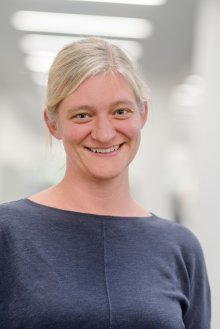Current research projects
To access the completed research projects, please click here.
Projects funded by Third Parties
Fasting – Religious / Spiritual Praxis as “Life Support”

Modernisation processes and radical social changes have increasingly marginalised fasting as an expression of Christian piety, so that the praxis is now in need of elucidation. At the same time, it is possible to identify a present-day rediscovery and transformation of fasting, and many new forms of fasting have become joined to the praxis as originally understood and intended. The aim of the research initiative is – in connection with the fasting initiative of the Evangelical Church in Germany (EKD) and the association “Andere Zeiten e.V.” – to conduct a hermeneutically reflexive and qualitative / empirical examination of this transformation in Christian fasting praxis in order to explore where the potential of fasting lies for people today. Generously supported by funding from the association “Andere Zeiten e.V.”.
The project will be realised by Antonia Rumpf.
Transformations in Pastoral Ministry
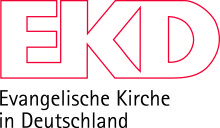
The pastoral or parish ministry plays a key integrative role for the membership of the Protestant churches. At the same time, it is coming under pressure in the wake of growing pluralisation, individualisation, and secularisation processes, and it is becoming markedly less important in society as a whole. On top of this, the structural parameters for the work of the pastoral ministry have changed for the worse due to cutbacks in the regional churches. By means of a qualitative empirical survey, the project aims to determine to what extent the pastoral ministry is currently undergoing change in respect of shifts in its spheres of activity and responsibility, of the relationship between person and office, of changed mental and emotional pressure, and of the interplay between feedback- and remit-orientation, and to determine how (parish) ministers deal with this subjectively. The project is being generously sponsored by the Evangelical Church in Germany (EKD), the Evangelical Church of Westphalia, the Evangelical-Lutheran Church in Württemberg and the Evangelical Church in the Rhineland. Verena Kroll is executing this.
Research at the Institute
- Sexuality, forms of life, marriage
As far as Reformation theology is concerned, sexuality, marriage and family are fundamental forms of expression in human life; they constitute a foundation of our culture, yet the shape they will assume in practice is not necessarily predetermined and self-evident. While this field has been undergoing considerable change processes in the recent years, it nevertheless appears that the values of partnership and family have remained as relevant as ever. In addition to observing sociological nuances while conducting research into the current situation, it is essential to analyse the diversity of marriage and family in historical terms and to examine the socio-ethical and theological interpretations of marriage and family in a more precise manner than has been done to date. With regard to theological practice, the newly gained insights will be of interest for ecclesial practice in pastoral care and religious education in the classroom. The fact that there is a demand for answers in society is illustrated by the irritations and uncertainties that had been triggered following the publication of the orientation guide “Zwischen Autonomie und Angewiesenheit: Familie als verlässliche Gemeinschaft stärken” (“Between autonomy and dependence: strengthening families as dependable communities”, 2013) by the Evangelical Church in Germany. In Isolde Karle’s monographies “Da ist nicht mehr Mann noch Frau” (“There is no longer Man and Woman”) and “Liebe in der Moderne” (“Love in the modern era”), these issues are addressed, and they are to be studied in more depth.
- Religion and Society
The Institute organises symposiums and workshops that focus on interdisciplinary research into the relationship between religion and society. The questions that are of particular importance from the perspective of theological practice include: in what way can Church adapt to the ongoing individualisation and pluralisation of religion, and is society becoming increasingly secularised or is a new interest in religion emerging (“religious boom”)? To what extent does religion enable people to open their minds to plurality and to otherness in a contingency-sensitive manner? In what way can faith accept and at the same time process contingency? How can Church open up to forms and tendencies of freely roving religiosity without losing its unique signature? How can explicitly Christian practice be maintained and developed through the interaction with forms of implicit Christian practice and communication that are embedded in intermediate spaces? Not least, the following question arises with regard to the public task of the Church: how can the Church address political developments in a pluralistic society without being perceived as merely society’s moral agency? We frequently invite renowned researchers as well as executives from the corporate world in order to discuss these questions and develop long-term perspectives.
- Physicality
In the late-modern society, the body has increasingly become a centre of attention (“body turn”). On the one hand, people seek an intense body experience, as uncertainties with regard to identity grow; on the other hand, they strive to achieve body optimisation, which is supposed to render the body healthier, more beautiful and more “normal” in accordance with current standards. These social change processes have as yet been barely touched upon by theology. Body and body standards have remained a marginalised subject in the field of practical theology. And yet, reflecting on the question of modern conduct of life in a manner that is both sociologically sensitive and compliant with theological practice and developing strategies for addressing that question are essential for pastoral care, for educational processes and, last but not least, for sermons on lifeworld issues and emotions. It is crucial to examine the ambivalence of practices and strategies associated with the suffering and modifying of the body in a nuanced manner, to comprehend their deep existential entrenchment in (gender) identities and emotions, and to address them critically while appreciating them at the same time. Having already submitted several studies on this subject,
- Altruism
Are humans born selfish and is their awareness for other people’s needs painstakingly raised through education, culture and religion? In the recent decades, there has been an increase in the number of voices t,hat question the idea of egoism being the fundamental motivation of human behaviour, as they approach it from radically different perspectives. Striving to follow up these questions in interdisciplinary discussions, we have established a dedicated research group at RUB (in collaboration with professors Traugott Jähnichen, Norbert Ricken, Thomas Söding, and Jürgen Straub). We have already organised several symposiums addressing this subject. The most recent one (2017) focused on the question: Why do people help? In the process, it emerged that altruism does not necessary equal self-denial; rather, it is an extension of one’s self, which is aware of its fundamental connections with others and which can be experienced to be a beneficial resonance chamber. The specific conditions of such non-self-destructive commitment to others are to be analysed and described in detail in the contexts of volunteering work and in relationships within the privacy system.
- Textbook on Practical Theology
In her research year between February 2018 and March 2019, Isolde Karle will author a textbook that is scheduled for release as part of a series published by the media company Evangelische Verlagsanstalt in 2020. In the process, all sub-disciplines of practical theology are to be addressed – rather than just religious and Christian education, to which an entire volume will be dedicated.
Dissertation projects
PhD research focus: Dimensions of Care
- Information on the PhD research focus
- The scholarship organisation Evangelisches Studienwerk e.V. Villigst introduced a new interdisciplinary research focus titled “Dimensions of Care” in autumn 2013. In addition to the Chair, professors Micha Werner (philosophy, University of Greifswald), Anna Henkel (sociology, University of Lüneburg), and Gesa Lindemann (sociology, University of Oldenburg) apply the research focus in interdisciplinary collaborations. The project team took up their work on June 1, 2014.

For more information on the PhD research focus, please do not hesitate to reach out to Isolde Karle or click here.
Each supervising professor has been assigned five grants for two years respectively for the duration of the five-year project. Students who wish to conduct their PhD research on the subject of “care” are welcome to submit an application for a PhD grant to the organisation’s headquarters in Villigst. If you are interested in the scheme, please contact Isolde Karle.
On September 21/22, 2017, the 3rd annual conference on the PhD research focus took place in Villigst. Its theme was “Do not Worry – Criticism of Care”. (“Sorget nicht – Kritik der Sorge”) For the programme, click here.
On September 13/14, 2018, the 4th annual conference on the PhD research focus took place in Villigst. Its theme was "Limits of Care". ("Grenzen der Sorge")Sie stand unter dem Thema "Grenzen der Sorge". For the programme, click here.
On September 19/20, 2019, the 5th annual conference of the PhD research focus took place in Villigst. Its theme was "Care and being carefree: Limits, Environments, Requirements". ("Sorge und Sorgefreiheit: Grenzen, Atmosphären, Rahmenbedingungen") For the programme, click here.
On October 1/2, 2020, the 6th annual conference of the PhD research focus took place in Villigst. For the programme, click here.
- Nicole Kirschbaum: Carol Gilligans Ethics of Care. Perspectives for Religious Education Pedagogy
- Gilligan initially criticises development psychologies based on conventional concepts of structural genetics. The aspect that strikes her is the fact that Kohlberg places women in a lower category than men in his stages of moral development (moral reasoning), and that the works of Piaget and Kohlberg claim to be universally applicable despite being based on empirical research using only male participants. Following this observation, she develops Ethics of Care as an alternative perspective for moral reasoning. When assuming a perspective based on the values of justice, the primary focus is on following established laws and norms. When making moral decisions in accordance with Ethics of Care, the relevant factor are interpersonal relationships. Moral judgement depends on the context. The focus is on empathy and on responsibility in social relationship networks. Gilligan posits a plurality of human cognition and demonstrates that Kohlberg’s universalistic perspective must be relativised.
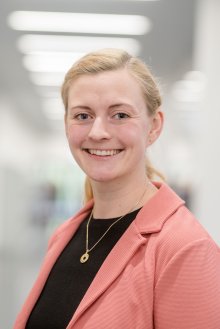
A critical reception of Ethics of Care (strengths and weaknesses) may provide vital impulses in the field of religious education pedagogy. What are the differences to cognitivist development psychology based on structural genetics? How can the two perspectives ‘justice’ and ‘care’ be rendered applicable in religious education in schools based on Biblical texts, ethnic conflicts, and the students’ individual identity issues?
- Laura Brand: Ritual Communication at the End of Life in the Context of Hospice Work
- In connection with the concept of holistic accompaniment of the dying and their relatives, the hospice movement attaches central importance to the spiritual dimension. In grief counselling, this dimension is increasingly being taken into account again after a period of distance from religious forms and rituals. Ritual communication plays a special role in perimortem grief counselling, especially for the process of saying goodbye and for realizing death. Rituals help to endure inhibition and uncertainty in the presence of death. In view of processes of change in society as a whole, it is no longer possible to fall back on traditional Christian rituals without further reflection. Against this background, the question arises as to what farewell rituals in hospices actually look like, and whether or which Christian forms of meaning play a major role in them. In the context of an empirical study, the significance of the rituals - not only for relatives, but also for hospice employees themselves - will be investigated and the effect of the rituals as a form of pastoral care will be examined. The project is carried out within the framework of the interdisciplinary research focus "Dimensionen der Sorge" ("Dimensions of Care") of the Evangelisches Studienwerk Villigst.
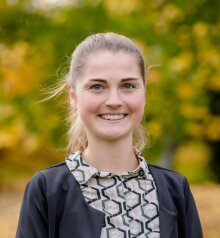
- Lisa Stiller: Organizations that care for the Dying as Care Communities. Spiritual Care in an Interprofessional Perspective
- Dying and death are existential issues that challenge us to reflect upon and deal with them in our own way. The emergence of care communities in hospices and palliative wards and the concept of spiritual care show a newly awakened interest in a humane approach to the dying: Dying people should not be left alone and their special - also spiritual - needs should be taken into account. In connection with the concept of Spiritual Care, this task falls to all those who work in an interprofessional team and care for the dying. An empirical study focuses on the following questions: What do the various professions in the interprofessional treatment teams understand by care for the dying? Which narratives of dying prevail? Can the concept of Spiritual Care actually be verified in practice? What special tasks are assigned to professional pastoral care workers? Finally: What conclusions can be drawn from the study for pastoral practice and the understanding of Spiritual Care?
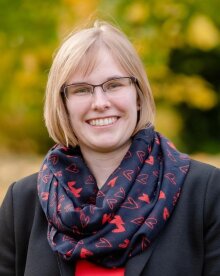
Habilitation projects
- Dr Katja Dubiski: Spirituality
- Everyone is talking about spirituality; the number of publications on this subject has been increasing for years. At the same time, the understanding and use of the term “spirituality” varies strongly among the disciplines. This is first and foremost true in theological and psychological research. The research project aims at systematising the terminology and at using the findings to demonstrate the limits of interdisciplinary and transdisciplinary dialogue with regard to spirituality.
